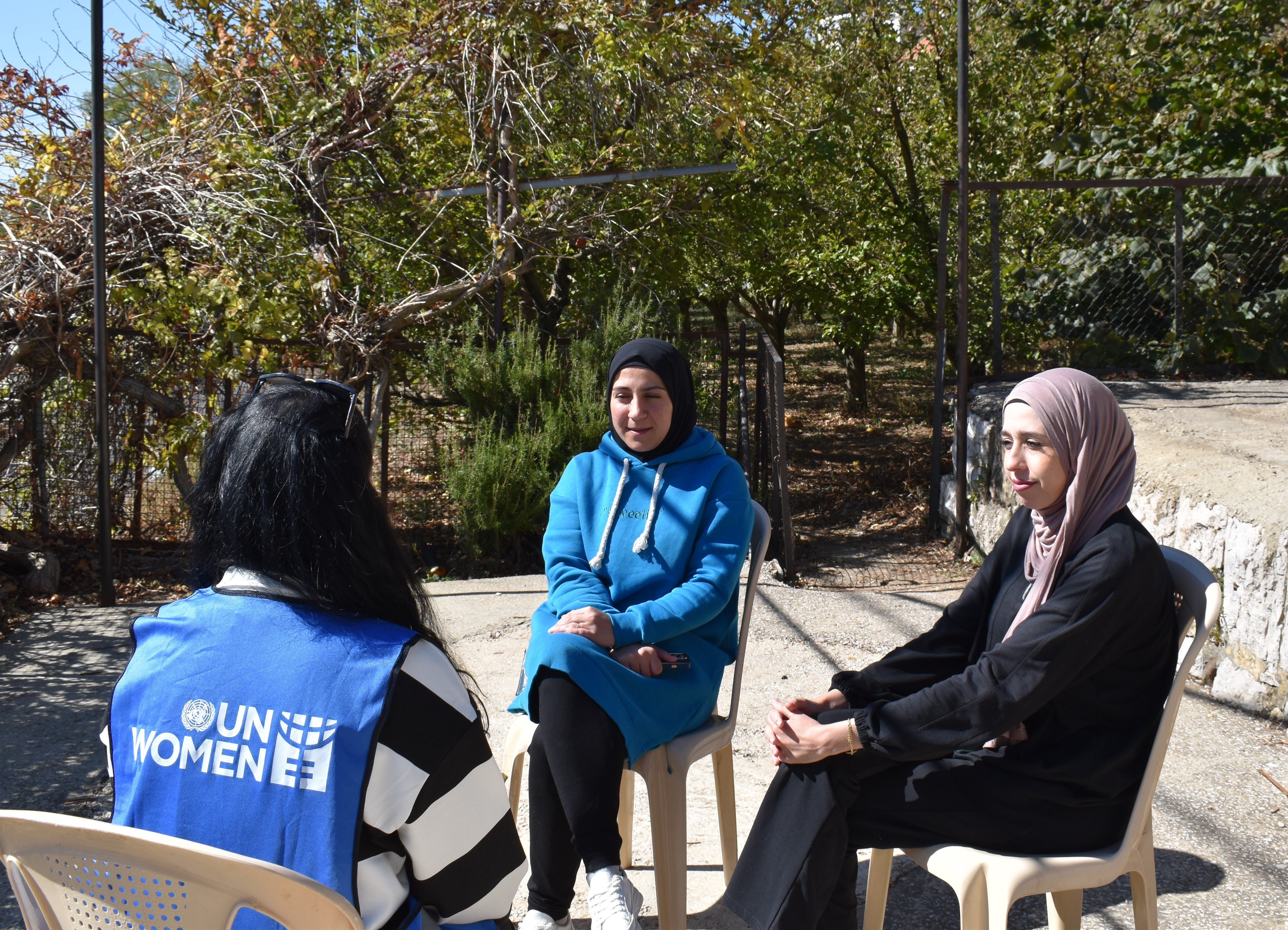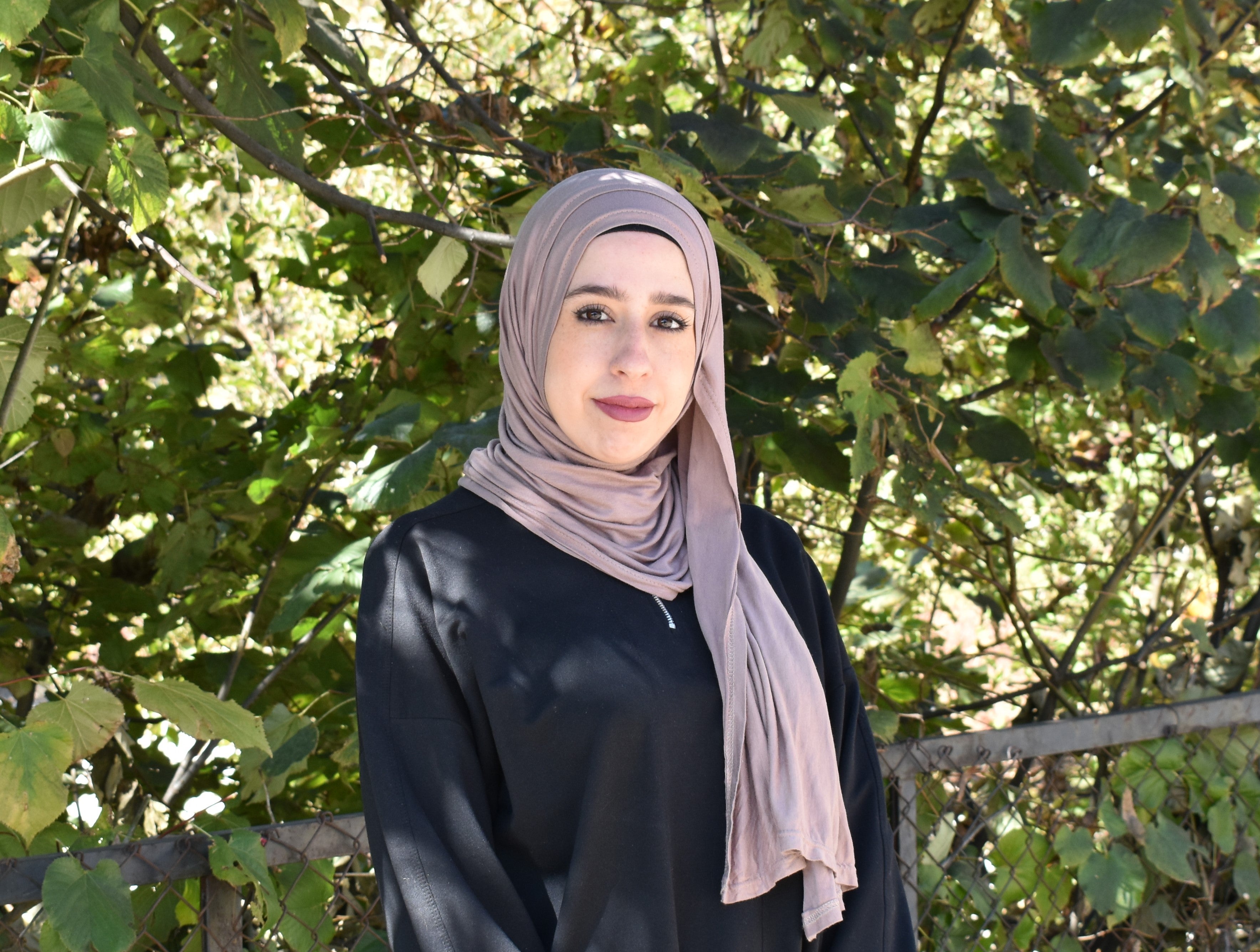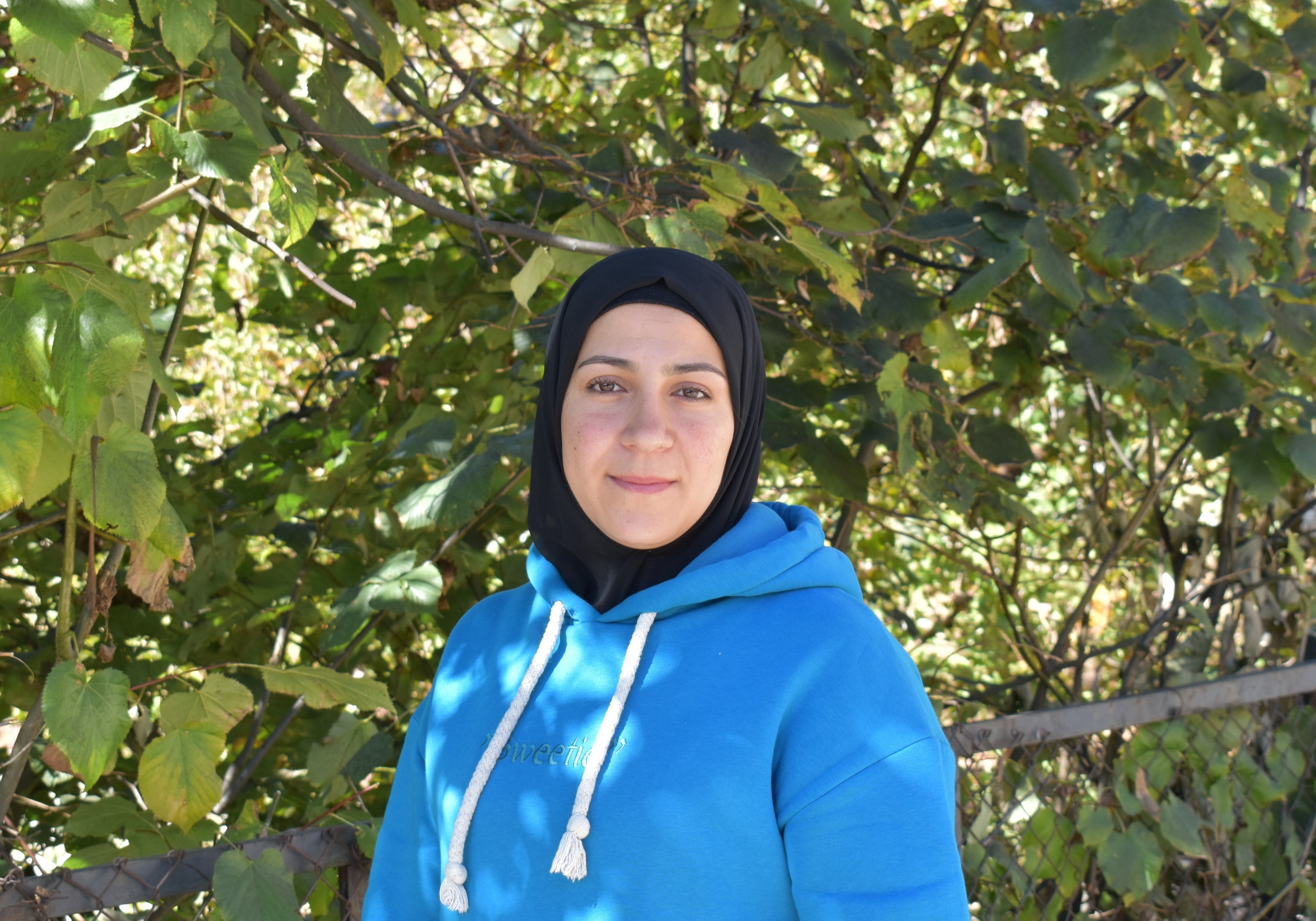Amid conflict, displaced Lebanese women actively organize at shelters
Date:
Chronicles of displacement
Pregnancy is hard enough without adding the fear and risk of bombardment. So, when the hostilities intensified in Kfarsir–Nabatieh, South Lebanon last month, 29-year-old pregnant mother Lama Chami made the courageous decision to flee.
“We, as women, are strong, and the war will not break us,” she says, defiantly.

Uprooting her family was a decision she didn’t take lightly, having been displaced during the 2006 war,[1] when she was just a child and her family fled to Mount Lebanon.
“[This time with my husband and son] we left under bombing and threats, leaving behind years of memories and security, hoping for even a slim chance that our child wouldn’t face the same fate as the children in Gaza,” says Chami. “I hope my child isn’t born while the war still rages.”
After a gruelling 15-hour journey, Chami found shelter at Auberge Beity in Kfardebian, northeastern Beirut. Originally a hostel run by Beity Association, a partner of the UN Women Women’s Peace and Humanitarian Fund, it is among the 1,015 schools and other sites that have been repurposed into collective shelters.
According to the International Organization for Migration, there were 834,746 internally displaced people (IDPs) in Lebanon as of 28 October, nearly a quarter (189,151) of which are living in crowded collective shelters.

“Displacement is incredibly difficult – it makes one feel stripped of dignity,” says Chami. “Women, who bear the greatest burden of displacement, take care of the entire family, silently enduring and remaining strong for their children. Women are the backbone of the family; if they fall, everyone falls with them. This is what keeps me from breaking down.”
She says the psychological support IDPs receive from Beity and its partner NGO Mind Mend has made her more resilient and allowed her to play an active role.
“I, along with other women, conducted a needs assessment to help Beity handle the heavy load,” she says.
“Being involved in these activities gives me strength and determination to enhance my role in the response. It allows me to feel that I’m not merely a war victim but an active participant in supporting others, like many women whose voices often go unheard.”
Besides mothering her newborn, Chami also plans to promote women’s leadership, especially post-conflict.
“Women have the power to rebuild Lebanon – its people and its economy,” she says. “My project after the war will focus on training women in leadership and bridging divides within Lebanese society. … We will keep working to rebuild our Lebanon, making it more beautiful than ever before.”
Afaf Shoaib
Afaf Shoaib, a 29-year-old mother of two, who was forced to flee her home in Baalbek, northeastern Lebanon, arrived with her husband and children at Auberge Beity a month ago, in the dead of night.
Like Chami, Shoaib was also displaced during the war in 2006, when her family took refuge temporarily in Syria. She believes she’s developed certain coping mechanisms, “but, no matter how many times you are displaced, it never becomes easier.”
The financial impact has also been significant. Shoaib’s husband left his job, leaving her the sole breadwinner with her income from a local NGO – for which she continues to work remotely.
“Our financial situation is very challenging, but my work saved our family. In times like these, you realize just how important it is for a woman to have a role, a job and an income. My family values my work now more than ever,” reflects Shoaib.

She says Auberge Beity welcomed her with open arms and is providing not only shelter but food, water, heating and activities to help IDPs and children cope with trauma.
Like Chami, she’s also taken an active role in shelter management, creating a needs assessment form, and preparing awareness sessions for children and adults.
“We no longer feel like helpless displaced [people], but active participants in the response,” says Shoaib. “We feel useful. Yesterday, I even put together a schedule to distribute responsibilities among families to ensure everyone’s participation and prevent conflicts.”
Shoaib sees women’s roles as central in the response to the current crisis, and beyond: “Lebanon’s recovery and the rebuilding of society after the war must be led by women. I intend to focus on women’s economic empowerment after the war, as women are the best peacebuilders and community leaders.”
Solidarity in the face of adversity
Sabine Nehme, a volunteer for Auberge Beity, says transforming a hostel for tourists into a collective shelter in just a few days with limited resources wasn’t easy, but they made it work because turning people in need away was simply not an option.
“The solidarity shown by the host community has been remarkable, but support for our association from local and international bodies has been minimal, making it hard to meet the needs here. We’re doing our best to figure out how we can sustain this support.”
Nehme says volunteers organize awareness sessions, music therapy and other activities to uplift spirits, as well as a support group to help one another.
“Women are playing a crucial role in this response, and I truly hope that Lebanese women take on larger roles in public life in the future, as women are natural peacebuilders,” says Nehme.
[1] A month-long war between Israel and Hezbollah in July 2006 gave rise to United Nations Security Council resolution 1701, which established a 120-km “Blue Line” between northern Israel and southern Lebanon and authorized UNIFIL to intervene in case of any crossing, by land or air.